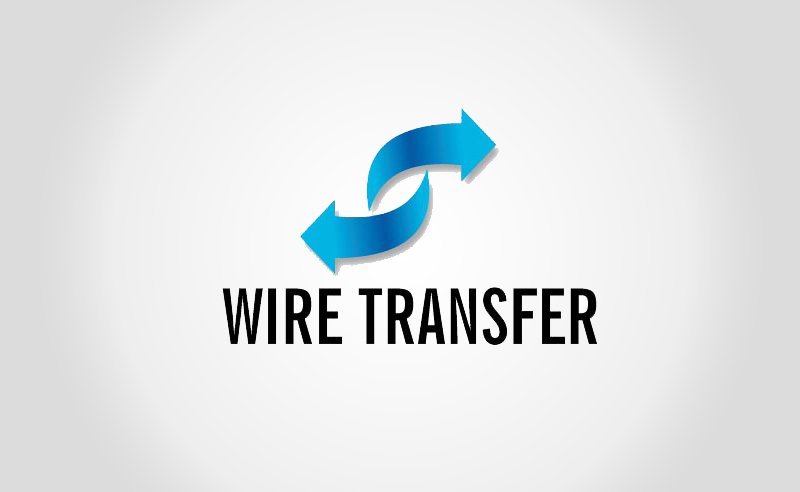ACH vs. Wire Transfers: Mastering Your Finances with the Right Transfer Method
Choosing between an ACH and a wire transfer is crucial to smartly managing your money. Both methods have unique ways of moving your funds. An ACH transfer is like using a community shuttle that takes a regular route and might take a little longer but costs less. On the other hand a wire transfer is like hiring a direct taxi that gets your money where it needs to go quickly especially when sending money across borders but it comes at a higher price.
Why does picking the right way to send money matter so much? Well it's all about what you need. The slower cheaper ACH might suit everyday tasks like paying bills or getting your paycheck. But when you need to send money fast or to someone far away that's where the speedy wire transfer shines. The key is to choose the appropriate instrument for the task at hand.
And that's exactly what Trusted10.io does. This is our job: to tell you about these choices and help you pick the best one for you. Our experts dive deep into ACH transfer vs. wire transfer laying out all the details so you can make intelligent choices. This blog aims to clarify any confusion and help you confidently navigate your money transfers.
Understanding ACH Transfers
ACH transfers are a way to send money between bank accounts without using cash or checks. It's like sending money through the internet safely.
What are ACH Transfers?
The term "Automated Clearing House" (ACH) describes a mechanism that facilitates the transfer of funds between financial institutions. This is handy for getting your work pay directly into your bank account or paying bills quickly.
Good Things About ACH Transfers:
- Cheap: Sending money this way usually costs little which is great because it allows you to keep more of your money.
- Safe: ACH transfers are secure. They have unique ways to protect your money so it doesn't get lost or stolen.
- Handy for Regular Payments: They're really good for when you have to pay the same things repeatedly like your rent or a monthly subscription because you can set it up once and not worry about it again.
Things to Remember:
- Not Super Fast: These transfers are quick but take time. It could take a few days for the money to get where it needs to go.
- Mainly in the U.S: ACH transfers are great for sending money within the United States but might not work for sending money to other countries.
How to Do an ACH Transfer:
- Permission: Make sure that the person or business you're giving money to is okay with it.
- Details: You will need the banking number and bank account number of the place where you want to send the money.
- Start the Transfer: You can do this through your bank's website or app.
- Double-check: Make sure everything is right so the money goes where it needs to go.
- Watch: Watch your bank account to see when the transfer is done.
Knowing about ACH transfers can help you send and receive money quickly and safely without dealing with cash or checks. It's an intelligent way to handle your money in today's world.

Understanding Wire Transfers
Fast and easy money transfers between bank accounts are possible with wire transfers. They can be useful if you need to send money far away even to another country without using cash.
What is a Wire Transfer?
The process of a wire transfer is similar to the electronic transmission of funds between banks. It's a safe and fast way to move money especially when you need to send a lot of it far away.
Good Things About Wire Transfers:
- Fast: They are super quick. If you send money close by it can arrive on the same day or in a few days if it's going far.
- Works Everywhere: With a wire transfer you may send money almost anywhere in the globe.
- Great for Big Money: If you need to send money like for buying a house wire transfers are a good choice because they're safe.
Things to Remember:
- Can Be Pricey: Sending money this way can cost more fees than other ways of sending money.
- No Take-Backs: Once you send the money you can't return it if you make a mistake. Before you email it double-check that everything is accurate.
How to Do a Wire Transfer:
- Pick Who to Use: You can send money through a bank or a company that transfers money.
- Get the Details Right: You need the name and bank account information of the person you're sending money to.
- Check the Cost: Determine the total cost of sending the money. Where you're sending it might affect the cost.
- Read Everything: Ensure you understand everything before agreeing to send the money.
- Be Careful: When you fill out the form to send money double-check all the information to ensure it's correct.
- Keep Proof: Save any papers or numbers they give you after you send the money just in case there's a problem later.
For large sums of money wire transfers are often the fastest and most reliable method of transmission. Just check all the details and know the costs before you go ahead.

Which is better ACH or Wire transfer?
When you need to shift money think about utilizing an ACH or a wire transfer. Both have their places in finance but they work differently. Picking the right approach for your requirements requires an understanding of these distinctions.
What Sets Them Apart:
- Cost: If saving money sounds good ACH transfers are usually cheaper sometimes even free. However you should be aware that wire transfers sometimes incur unexpectedly high costs.
- Speed: Need that money moved fast? Wire transfers are the way to go often completed on the same day. ACH transfers take time usually a few days before the money is fully transferred.
- Safety: Both methods are secure but ACH transfers have an edge because of the extra checks in the system. Wire transfers are quick and final once the money's sent so there's less room for errors.
- Where Can You Send Money?: ACH is mostly for moving money within the U.S. while wire transfers are the globetrotters of the financial world reaching far and wide across borders.
Things to Think About:
- Why Are You Sending Money?: Regular payments like your mortgage or utilities? ACH is perfect. But for those significant one-off payments or emergencies you might want to wire the funds.
- How Fast Do You Need It?: If time is of the essence and today means today wire transfers have the speed you need. The processing time for an ACH transfer is typically a few days and they are considered more relaxed.
- Where's the Money Going?: Sending money overseas? Wire transfers are your ticket. If you're moving money within the U.S. ACH might be your best bet.
Choosing between an ACH and a wire transfer depends on several key points: how much you're willing to pay how fast you need the money to move and where it's headed. Now that you have all the facts you can make an informed decision about your money.
Fastest Way to Transfer Money
In today's fast-paced world quickly getting money from point A to point B is often a priority. Consider the transfer's speed before choosing between an ACH and a wire transfer. All the information you need to make a fast decision is right here.
Speed Showdown:
- ACH Transfers: These are the marathon runners of the financial world taking their time to reach the finish line. Expect them to complete the journey in about three business days as they move in batches through the ACH network.
- Wire Transfers: These are the sprinters dashing from one bank to another on the same day often within hours. They can be the fastest way to transfer money especially for urgent needs but sometimes they might take a day or two.
What Affects Speed:
- The Networks: The technology and rules of the ACH and wire networks set the pace for transfers.
- Checking Details: ACH transfers require double-checking details between banks which can slow things down. Wire transfers skip straight to the finish line.
- Busy Times: Just like traffic can slow your commute many transactions at once can take longer. Wire transfers usually deal with less traffic.
How to Speed Things Up:
- Pick the Right Method: Consider what's more important for your situation: speed or saving money. If speed is key wire transfers might be your best bet.
- Get the Details Right: Ensure that all the information you provide is spot-on to avoid detours or delays.
- Look for Fast Tracks: Some services offer quicker versions of ACH or wire transfers so it's worth asking about your options.
- Go Online: Online services can often speed up the process as they're set up for quick transactions.
- Mind the Clock: Sending your transfer before the day's cutoff time can mean the difference between same-day and next-day processing.
Choosing between ACH and wire transfers for quick money movement comes down to understanding their speeds knowing what can slow things down and using a few tricks to make things go faster. Whether paying a bill at the last minute or sending emergency funds picking the proper method can help you hit the needed speed.
International Money Transfer
You might feel like you're on a big trip when you send money to another country. There are several ways to send it and each has its own rules and fees. It's like choosing between different paths in a game—some might be quick but expensive and others might be cheaper but slower.
What to Think About with International Transfers:
- Costs: It can cost a lot to send money to another country. Most of the time wire transfers cost more than ACH payments.
- Time: If you need to send money fast ACH transfers might take longer usually a few days. Wire transfers can be quicker but it depends.
- Safety: Both ways are safe to send your money but if something goes wrong ACH transfers can sometimes be fixed or reversed giving you more peace of mind.
Choosing the Best Way:
- How Much Money?: ACH might be cheaper if you're sending a little bit of money often. A wire transfer might be better if you send a lot of money immediately and need it there quickly.
- How Quick?: Wire transfers are usually quicker if you're in a hurry and the money needs to get there fast.
- Why Are You Sending Money?: Think about why you're sending the money. Will you do it often or just once? This can help you choose.
- Where is the Money Going?: Some countries might have different options for sending money. Check which ways work best for the country you're sending money to.
Knowing these things can help you choose the best way to send your money safely to another country ensuring it gets there just how you want it.
Conclusion
We discussed two ways to send money: ACH transfers and wire transfers. ACH is usually cheaper and suitable for sending money within the country. Wire transfers are fast and can send money worldwide but they can cost more.
Before deciding on a method of sending money think about what you need. How important is speed of delivery compared to how much you want it to cost? Where is the money going? Thinking about these things can help you pick the best method.
Trusted10.io is here to help you understand how to send money the best way. When it comes to money we offer tons of information and recommendations to help you out. Whether paying bills saving or sending money far away we're here to help you make good choices.
